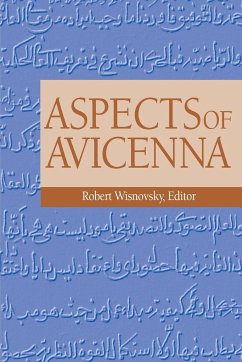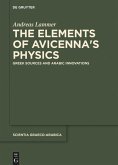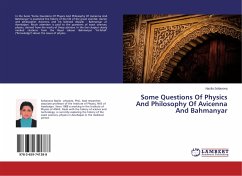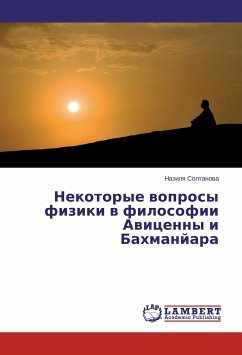The philosopher and physician Abû ¿Alî al-Husayn ibn ¿Abdallâh ibn Sînâ (d. 1037 c.e.), known in the West by his Latinized name Avicenna, was one of the most influential thinkers of the Islamic and European Middle Ages. Yet for a great number of scholars today Avicennäs thought remains inaccessible. Because he wrote almost all his works in Arabic, Avicenna seems remote to historians of medieval European philosophy who are able to read only the Latin translations of those works. And because he expresses his subtle and complex ideas in the technical terminology of Aristotelianism and Neoplatonism, Avicenna seems remote to Islamicists who have little or no background in the history of ancient and late-antique philosophy. By addressing some of the most fundamental issues in Avicennäs psychology, epistemology, natural philosophy, and metaphysics, the contributors to this book hope to make Avicennäs thought more accessible to Latinists and Islamicists alike. After a brief preface, there are sections on Avicennäs theories of intuition and abstraction, and on his ideas about bodies and matter. Also catalogued in this volume for the first time is a large hoard of photostats of Avicenna manuscripts recently uncovered at the American Research Center in Egypt.
Bitte wählen Sie Ihr Anliegen aus.
Rechnungen
Retourenschein anfordern
Bestellstatus
Storno








